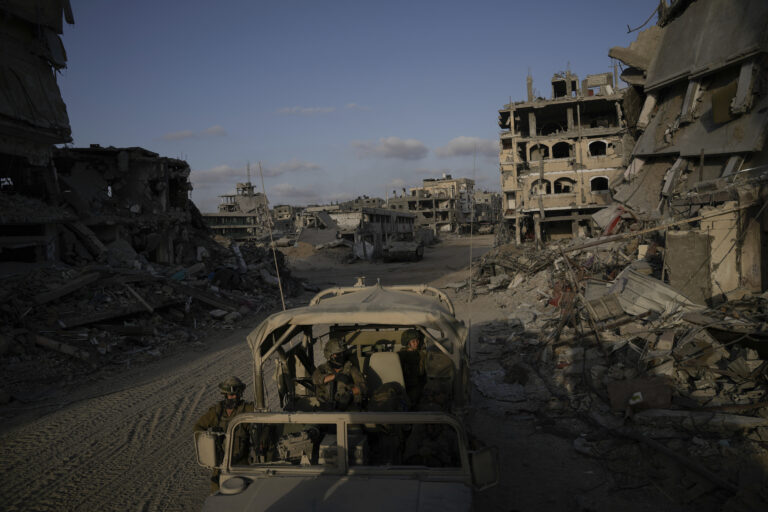 The chemical weapons attack in Syria that triggered retaliatory American airstrikes hasn’t shifted U.S. priorities toward ousting Syrian President Bashar Assad, top Trump administration officials said.
The chemical weapons attack in Syria that triggered retaliatory American airstrikes hasn’t shifted U.S. priorities toward ousting Syrian President Bashar Assad, top Trump administration officials said.
After last Tuesday’s chemical attack, President Donald Trump said his attitude toward Assad “has changed very much” and Secretary of State Rex Tillerson even said “steps are underway” to organize a coalition to remove him from power. But in a television interview that aired Sunday, Tillerson said the priority “really hasn’t changed.”
Defeating the Islamic State group remains the top focus, Tillerson said. Once that threat “has been reduced or eliminated, I think we can turn our attention directly to stabilizing the situation in Syria,” he told CBS’ “Face the Nation.”
“We’re hopeful that we can prevent a continuation of the civil war and that we can bring the parties to the table to begin the process of political discussions” between the Assad government and various rebel groups.
The hope, he said, is that “we can navigate a political outcome in which the Syrian people, in fact, will determine Bashar al-Assad’s fate and his legitimacy.”
Nikki Haley, the U.S. ambassador to the United Nations, said “getting Assad out is not the only priority” and that countering Iran’s influence in Syria was another. Still, Haley said the U.S. didn’t see a peaceful future Syria with Assad in power.
“Regime change is something that we think is going to happen because all of the parties are going to see that Assad is not the leader that needs to be taking place for Syria,” Haley told CNN’s ‘State of the Union.”
The comments from Tillerson and Haley suggested that the airstrikes Trump ordered punishing Assad for using chemical weapons would not lead to any immediate change in U.S. strategy toward Syria. Reluctant to put significant troops on the ground in Syria, the U.S. for years has struggled to prevent Assad from strengthening his hold on power.
U.S.-backed rebels groups have long pleaded for more U.S. intervention and complained that Washington has only fought the Islamic State group. So Trump’s decision to launch the strikes — which President Barack Obama declined to do after a 2013 chemical attack — has raised optimism among rebels that Trump will more directly confront Assad.
Tillerson spoke days before he will make the Trump administration’s first official trip to Russia, a staunch Assad ally. Russia had its own military personnel at the Syrian military airport that the U.S. struck with cruise missiles. But Tillerson said he sees no reason for retaliation from Moscow because Russia wasn’t targeted.
“We do not have any information at suggests that Russia was part of the military attack undertaken using the chemical weapons,” Tillerson said. Earlier, U.S. military officials had said they were looking into whether Russia participated, possibly by using a drone to help eliminate evidence afterward.
(AP)










